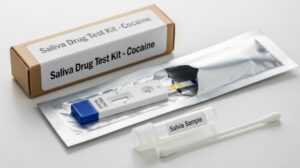Healing takes a lifetime to complete. While detoxing or going to treatment could be all that is needed to get sober, maintaining sobriety calls for ongoing care and dedication. For many, going back home following treatment compromises their capacity to lead truly sober lives. Relapse risk can be greatly increased if a person’s home life is full of stressors or demands (such as burdensome relationships or old haunts).
Thankfully, those who want to stay sober and continue their rehabilitation have options. For those in recovery who want an autonomous yet controlled and sober home life, sober living residences are a type of transitional housing. Living sober entails being in an environment free from drug and alcohol temptations and diversions. It also entails residing in an environment that allows you to strengthen and reaffirm the sober living skills you acquired during your treatment program.
While the advantages of sobriety have been discussed, what about the particular advantages of sober living homes? As in the advantages of genuinely leading a drug-free life on a daily basis, away from drugs and drug-using communities. Let’s examine this.
Regular Advice and Assistance
You will be surrounded by people in a sober living home who will hold you accountable every day and who will encourage your recovery. Sober living houses usually have managers who live on-site with you and the other residents. In addition to being there to chat, these managers are available around the clock to assist you with any potential problems that may come up throughout your recovery, such as challenging cravings, low mood, or difficulty obtaining employment. Sober living houses that are attached to treatment centers frequently feature alumni and support personnel who have been in similar situations. These individuals have firsthand experience with substance addiction, having finished treatment, and maintaining sobriety upon discharge. When you most need counsel, they can give it to you.
Additionally, house management will hold you responsible. There are guidelines in a sober living home to help maintain everyone’s happiness, well-being, and sobriety. A set curfew every night, a prohibition on alcohol and drugs on the property, or frequent drug testing to maintain a sober living environment are a few examples of these restrictions. We understand that relapses are common, but if someone consistently disobeys the guidelines, they cannot be permitted to stay. This keeps things as uniform as feasible in terms of the surroundings and expectations.
Deeply Meaningful, Sober Connections
Whether in treatment or sober housing, one of the most evident advantages of sober living is the relationships you will make. You will live and interact with individuals who have common ground and are also in recovery. These people are also familiar with the feelings of drug use, drug cravings, detachment or depression, losing control, and disappointing other people. Above all, they are motivated and driven to make the greatest changes in themselves and to stop using drugs and alcohol.
As loneliness is a fundamental component of the addiction cycle, living in a sober house or receiving residential treatment can also help lessen it. During your drug use, you probably felt extremely isolated. For fear of being judged and rejected, you might have severed your relationships with the kind people in your life or distanced yourself from relatives. On the other hand, everything can alter in a sober recovery environment. There will be individuals living next to you who have very similar experiences, so you won’t be alone. These folks will gradually begin to feel more like your family or your community, where everyone is there to support and understand one another. These are the relationships you will have for the rest of your life; these are the individuals you can rely on in difficult times and who will consistently hold you responsible for maintaining your sobriety. They form your network of sobriety.
Regained Living Skills
Many other commitments are abandoned when someone develops a drug or alcohol addiction. This could entail having a balanced diet, working out frequently, organizing your home, and practicing proper personal cleanliness. The structure that sober living restores to each resident’s life is one of its advantages. You will be taught how to set up routines and lead healthy lives again in treatment or in a transitional home. You’ll regain essential life skills and reestablish personal responsibility. These abilities can range from doing laundry to more challenging responsibilities like obtaining work. You will gain and put into practice interpersonal skills (managing any obstacles effectively), financial skills (paying rent and bills), and other practical skills necessary to adequately take care of oneself independently, without the use of drugs, while living with other people in recovery.
Self-Reliance
Newfound (or re-found) independence is one of the biggest advantages of sober living. You’ll start to reclaim your own life once you’ve established sobriety and have a good view of your recovery. You’ll be self-sufficient enough to look for work on your own and take the necessary actions to succeed in any career you choose. With your newfound freedom, you’ll be able to form deep and lasting friendships that will help you through your rehabilitation. Along with being free to prepare and shop for your own food, you will also be able to live a life full of the things that make you happy. In conclusion, you will have the flexibility to choose, and you will be able to make wise decisions that will ultimately improve your quality of life. You will be in a sober and safe setting the entire time.
Residents at Beachcomber’s Inpatient Program go through several stages of addiction treatment. When they are judged ready to embark on a more independent path in their recovery, they move into a sober living setting and adopt a more autonomous lifestyle, which includes going into the city for work, school, and social events; regularly engaging in self-care and healthy routines; and attending 12-step meetings independently. Through their treatment program, individuals continue to have access to clinical care and support during this time.
Easy Reintegration Into Mainstream Life
The fact that sober living houses facilitate the transition back into regular life is perhaps their most evident advantage. After rehab, recovery is a continuous process that never truly ends. For this reason, sober living situations are crucial. They help an individual ease back into the bustle of the “real world”—work, school, nightlife, relationships, and more—by bridging the gap between treatment and mainstream culture. They offer participants a chance to acclimate to independent living without the formal, round-the-clock care they received in a treatment setting, as well as a safe and sober place to return home to each night. Residents at sober living homes are able to experience what a sober life outside of rehab is like.
While many sober living facilities accept residents at all stages of recovery, they are often intended for those in early recovery or receiving outpatient treatment. The people who live in these housing facilities typically go to meetings or treatment on a regular basis. This is an extra bonus since it will enable you to fulfill these commitments and maintain sobriety.




